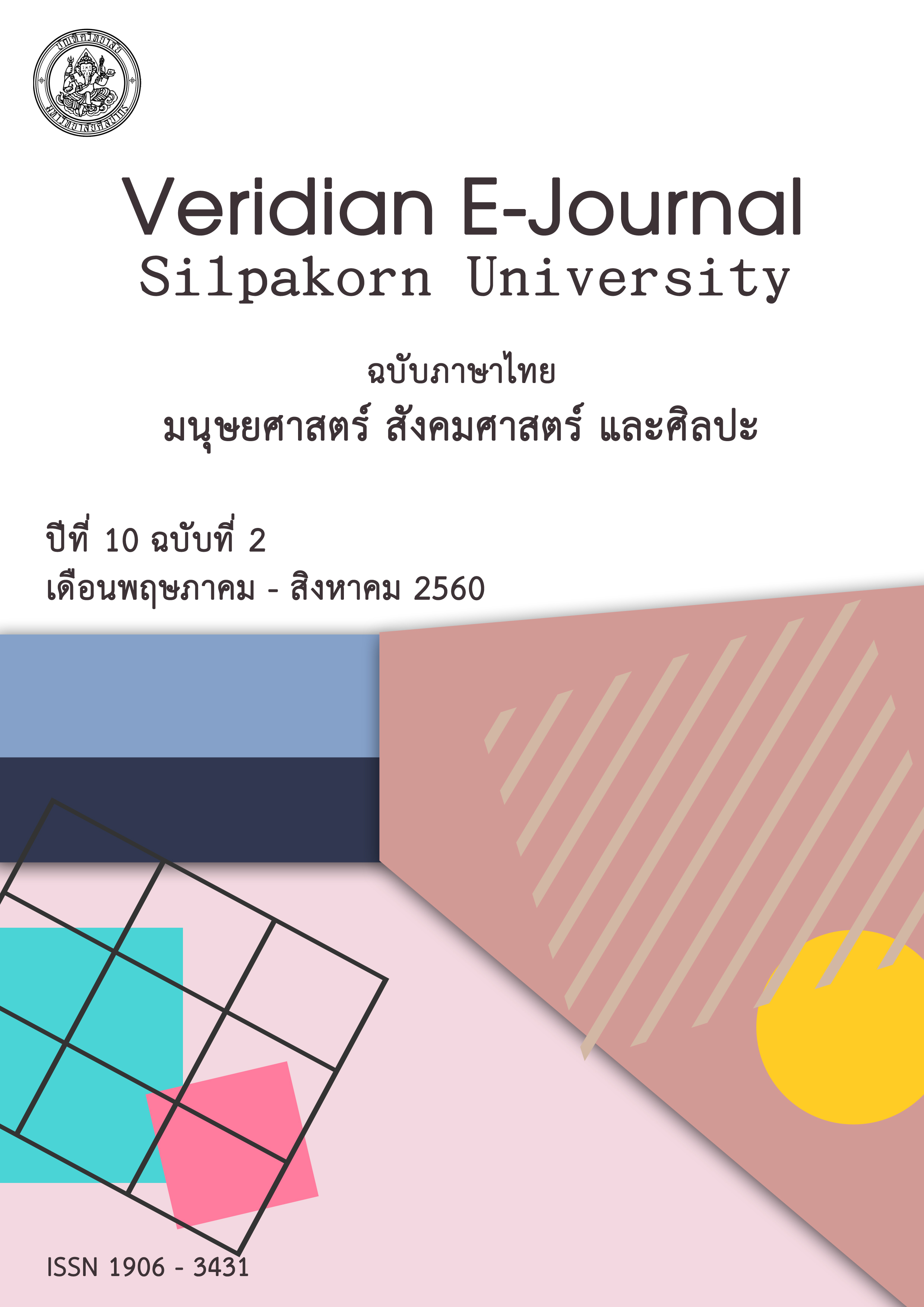รูปแบบกลยุทธ์การตลาดที่ส่งผลต่อความภักดีของลูกค้าร้านจำหน่ายสินค้าเกษตรอินทรีย์ ในประเทศไทย
Main Article Content
Abstract
การวิจัยครั้งนี้มีวัตถุประสงค์เพื่อศึกษารูปแบบกลยุทธ์การตลาดที่ส่งผลต่อความภักดีของลูกค้ากลุ่มวัยทำงานและกลุ่มผู้สูงอายุของร้านจำหน่ายสินค้าเกษตรอินทรีย์ในประเทศไทยซึ่งเป็นงานวิจัยแบบผสมผสานด้วยวิธีการวิจัยเชิงปริมาณและการวิจัยเชิงคุณภาพ กลุ่มตัวอย่างที่ศึกษาได้ แก่ ลูกค้าร้านจำหน่ายสินค้าเกษตรอินทรีย์ในประเทศไทยกลุ่มวัยทำงานและกลุ่มผู้สูงอายุ กลุ่มละ 870 คน รวมทั้งสิ้น 1,740 คน ผู้วิจัยเก็บรวบรวมข้อมูลด้วยแบบสอบถาม การสนทนากลุ่ม และการสัมภาษณ์เชิงลึก สถิติที่ใช้ในการวิจัย ได้แก่ การแจกแจงความถี่ ค่าร้อยละ การวัดค่ากลางของข้อมูล ส่วนเบี่ยงเบนมาตรฐาน การวิเคราะห์องค์ประกอบเชิงยืนยัน (Confirmatory Factor Analysis: CFA) และการวิเคราะห์โมเดลสมการโครงสร้าง (Structural Equation Model: SEM) ผลการวิจัยพบว่า ปัจจัยที่มีอิทธิพลต่อความภักดีของลูกค้ากลุ่มวัยทำงานและกลุ่มผู้สูงอายุของร้านจำหน่ายสินค้าเกษตรอินทรีย์ในประเทศไทย ได้แก่ กลยุทธ์การตลาดบริการ การบริหารลูกค้าสัมพันธ์ การรับรู้คุณภาพบริการ และความพึงพอใจของลูกค้า โดยองค์ประกอบที่สำคัญที่สุดของรูปแบบกลยุทธ์การตลาดที่ส่งผลต่อความภักดีของลูกค้ากลุ่มวัยทำงานของร้านจำหน่ายสินค้าเกษตรอินทรีย์ในประเทศไทย คือการรับรู้คุณภาพบริการด้านการดูแลเอาใจใส่ และความพึงพอใจของลูกค้าด้านความสะดวกที่ได้รับ ซึ่งส่งผลต่อความภักดีของลูกค้าด้านการกลับมาซื้อซ้ำมากที่สุด ในขณะที่องค์ประกอบที่สำคัญที่สุดของลูกค้ากลุ่มผู้สูงอายุ คือ การบริหารลูกค้าสัมพันธ์ด้านการสร้างความสัมพันธ์ด้วยการให้ความรู้เฉพาะด้านส่งผลต่อความภักดีของลูกค้าด้านการแนะนำบอกต่อมากที่สุด โดยโมเดลกลยุทธ์การตลาดที่ส่งผลต่อความภักดีของลูกค้ากลุ่มวัยทำงานมีความสอดคล้องกลมกลืนกับข้อมูลเชิงประจักษ์ในระดับดีมาก (ค่าสถิติ Chi square/df=0.95, P-value=0.65338, RMSEA=0.000, GFI=0.99, AGFI=0.97) และโมเดลกลยุทธ์การตลาดที่ส่งผลต่อความภักดีของลูกค้ากลุ่มผู้สูงอายุมีความสอดคล้องกลมกลืนกับข้อมูลเชิงประจักษ์ในระดับดีมาก (ค่าสถิติ Chi square/df=1.33, P-value=0.00271, RMSEA=0.021, GFI=0.98, AGFI=0.96)
The purpose of this research to study the model of marketing strategy affecting customer loyalty of organic products store in Thailand for the elderly group and working age group. This research was conducted by both qualitative and quantitative research methods into the study. The quantitative research was carried out 870 samples of each group and related 1,740 samples. The data were collected by questionnaire, focus group discussion and in-depth interviews. The statistics employed in the research are frequency, percentage, mean, standard deviation, Confirmatory Factor Analysis (CFA), and Structural Equation Model (SEM). The results indicated that the factors affecting customer loyalty of organic products store in Thailand with both elderly and working age groups was service marketing strategy, customer relationship marketing, perception of service quality, and customer satisfaction. The results found that the most important components of the marketing strategy affecting customer loyalty in the working age group was perception of service quality in term of empathy and customer satisfaction in term of convenience gained which most influenced on customer loyalty in term of repeated service. While, the most important components of the marketing strategy affecting customer loyalty in the elderly group was customer relationship marketing in term of education model which most influenced on customer loyalty in term of word of mouth. The constructed model of the working age group was good fitted with the empirical data (Chi square/df=0.95, P-value=0.65338, RMSEA=0.000, GFI=0.99, AGFI=0.97) and the constructed model of the elderly group was goodness of fitted with the empirical data (Chi square/df=1.33, P-value=0.00271,RMSEA=0.021, GFI=0.98, AGFI=0.96)

